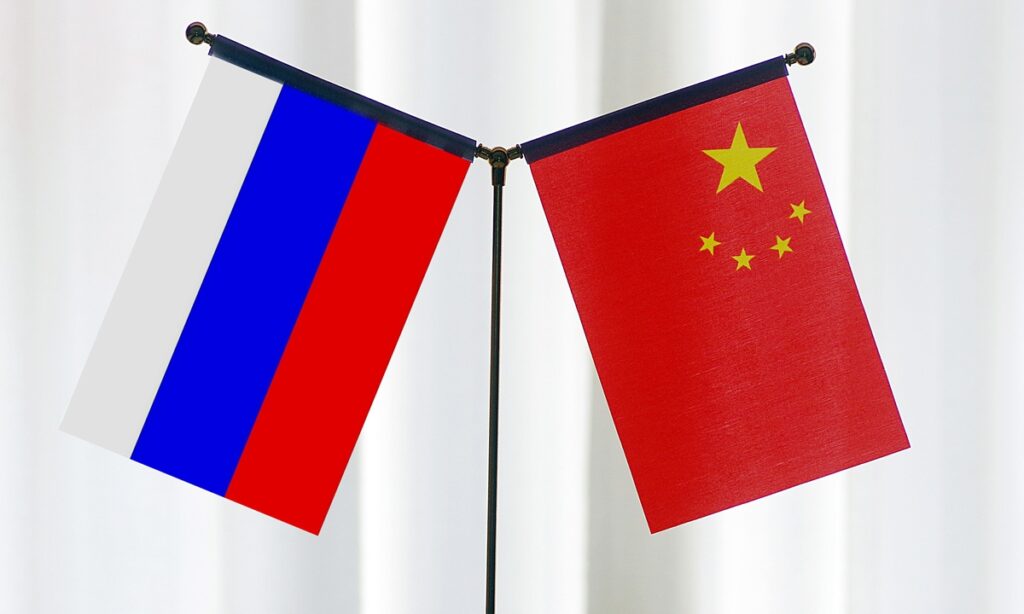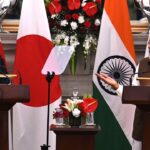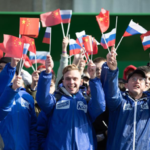Chinese President Xi Jinping arrived in Moscow on March 20, kicking off his state visit to Russia. The warm welcome from all levels of the Russian society and the super high attention of the international public opinion signify that this is a significant head-of-state diplomatic event. We have every reason to believe that this visit will further elevate the China-Russia relations which are already at historical high. It will not only bring tangible benefits to the two peoples but also to promoting peace and development for the region and the world, as determined by the nature of China-Russia comprehensive strategic partnership of cooperation for a new era.
On the day of departure, both President Xi and President Vladimir Putin published weighty articles in each other’s mainstream media, providing the highest-level interpretation of this visit from the perspective of China and Russia. This also reflects the extremely high level of strategic mutual trust between China and Russia. From these two articles, it’s not difficult for us to sense the deep personal friendship between the two heads of state and the ever-lasting China-Russia friendship. As President Xi said in the article, “China and Russia have found a right path of state-to-state interactions. This is essential for the relationship to stand the test of changing international circumstances, a lesson borne out by both history and reality.” The enormous value of this way of interaction is particularly prominent today amid the bloc confrontation and new cold war storm pushed by the US.
In fact, it is the new type of international relations that Chinese diplomacy calls for and is committed to practicing in the new era, with the essence of mutual respect, fairness and justice, and win-win cooperation. China-Russia relations are a vivid example of the success of the new type of international relations, which are built on the basis of no-alliance, no-confrontation and no-targeting of any third party; completely surpassing the small cliques formed by ideological divisions and camps of Western countries and also transcending the old paradigms of power division, interest exchange, and dominant/submissive relationships among major powers.
China and Russia are each other’s largest neighboring countries with significant differences in national conditions, public sentiments, political systems, and historical and cultural backgrounds. According to the narrow-minded thinking of some people in the US and the West, it seems that it is normal for China-Russia relations to be bad. However, the fact is that not only do China and Russia get along well, but their relationship is also very good, which is difficult for them to understand. It needs to be said that these people should take a few steps quickly and catch up with the times. The experience that China and Russia have explored and accumulated in long-term friendly and mutually beneficial cooperation will not be undermined and disintegrated by external wedge. It also has a significant positive demonstration effect on exploring the pattern of major-country relations based on peaceful coexistence, overall stability, and balanced development.
In theory, since China and Russia can get along well, other countries can also do the same. It can be imagined that the more countries build a new type of international relations, the more peaceful the world will become. Conversely, prejudices, ideological obsession, and geopolitical selfishness that exist between countries are obstacles to realizing the ideal state of international relations. The progress of human political civilization and the establishment of a more peaceful world depend on overcoming and transcending these obstacles.
President Xi mentioned in the article that it was during his visit to Russia in March 2013 when he first proposed the concept of a community with a shared future for mankind. Over the past 10 years, the fate of humanity has been even more closely linked. The ideal of a community with a shared future for mankind advocates that only through joint cooperation of all humanity can we solve common problems and challenges. The common interest of all humankind is in a world that is united and peaceful, rather than divided and volatile. President Xi later successively proposed the Belt and Road Initiative, the Global Development Initiative, the Global Security Initiative, and the Global Civilization Initiative. All these have enriched our vision for a community with a shared future for mankind and provided practical pathways toward it. They are part of China’s response to the changes of the world, of our times, and of the historic trajectory. In these respects, China-Russia relations, with long-standing practice, provide a complete and rich reference and proof for the world, reflecting the global significance of China-Russia relations.
Some US and Western public opinion, due to their narrow-mindedness, maliciously hype up normal exchanges between China and Russia, trying to distort it as a kind of “wrongdoing.” The openness and transparency of China-Russia relations is the strongest response to those rumors and smears. The outside world is particularly concerned about what role this visit will play in the Ukraine crisis, and in fact, we can find the answer from the two articles of President Xi and President Putin.
Against the backdrop of the world’s turbulence, China and Russia have charted a way to coexist as friendly neighbors and major powers with strategic mutual trust, setting a new paradigm for the relationship between major powers and bringing all-round inspiration to the world. We also believe that President Xi’s trip of friendship, cooperation, and peace will inject new impetus into the healthy and stable development of China-Russia relations and set a new example for promoting the construction of a community with a shared future for mankind.
(Global Times)




